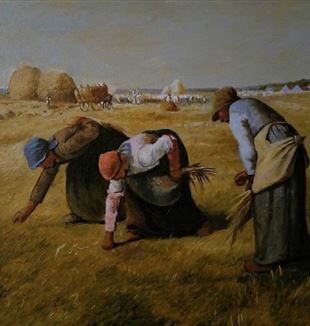
The Meaning of Charitable Work
Meghan rediscovers the meaning of charitable work in her weekly visit to Alice.I've participated in many different gestures of charitable work over my in the Movement, but my most recent experience of it has shown me concretely what Fr. Giussani meant about charitable work being a method of education.
Over the past two years, I have been bringing dinner once a week to a woman whose financial and family health situation made it impossible for her to make ends meet. I learned about this family's situation from a friend in my School of Community, whose mother was friends with her. When I started making meals for Alice and her family, her husband had become disabled and could no longer provide for the family, and the pandemic situation was making it more difficult for the family to get help in other places.
Each week, I have a brief interaction with Alice when I drop off dinner, and gradually have learned more details about their situation. I’ve come to understand that her biggest problems are not financial (although those are not insignificant). She struggles with serious depression, problems in her relationship with her husband (they have since divorced since I started bringing dinners), and most of all, struggling in faith. She is a devout Catholic in terms of practice, but has often expressed that she feels abandoned by God, that He is no more than a cold statue. She feels hopeless that her circumstances have left her in such need and have not changed, in spite of her prayers.
What I have learned is this: I'm grateful I decided to make meals for her instead of just sending her money, even though on the surface it may seem like money would be more helpful! But making meals first of all creates the opportunity for an encounter from which many things can flow. And secondly, developing a relationship with Alice has created a tension, from which has emerged great freedom. When I talk with her about all of her problems, I am tempted to try to find solutions to them; my mind starts racing with all sorts of "great" ideas – to get an accountant to help her budget, to find a tutor for her kids so she can work more, find a low-cost therapist, etc. In fact, there are times when I don't like her! I get frustrated with her because I think she refuses to see a way out of her situation. I also often leave frustrated with myself, feeling like I should have offered her better words of encouragement or found the exact right thing to say to make her have hope again. I leave feeling completely inadequate, and have often considered just stopping because it doesn’t seem to matter much whether I’m in her life or not. But I understand now that Fr. Giussani did not propose charitable work so that we can solve the problems of the world, but rather so we can learn to accompany one another through them. It's impossible for me to solve Alice's problems, but that limit has made me more faithful to the initial gesture of preparing dinner and offering a few minutes of conversation and a hug once a week.
Finally, perhaps the most important thing I have learned is that Alice and I are not very different. We are both prone to self-pity and experiences of doubting the faith, even though our circumstances are dramatically different. However, what I've learned is that the main difference between us is that I have been given a place that is constantly proposing that reality is positive. I am continually challenged with this hypothesis - "the inexorable positivity of reality" - and invited to verify it for myself. This is amazing! Even in cynical moments when I want to say, "No, it's impossible, reality is too harsh," I cannot remain in that position for very long because something always comes along to show me otherwise. My question then becomes one of "how do I show Alice that reality is positive?" For now, the best answer I can come up with is to keep making dinner.
Meghan, Nashville, TN